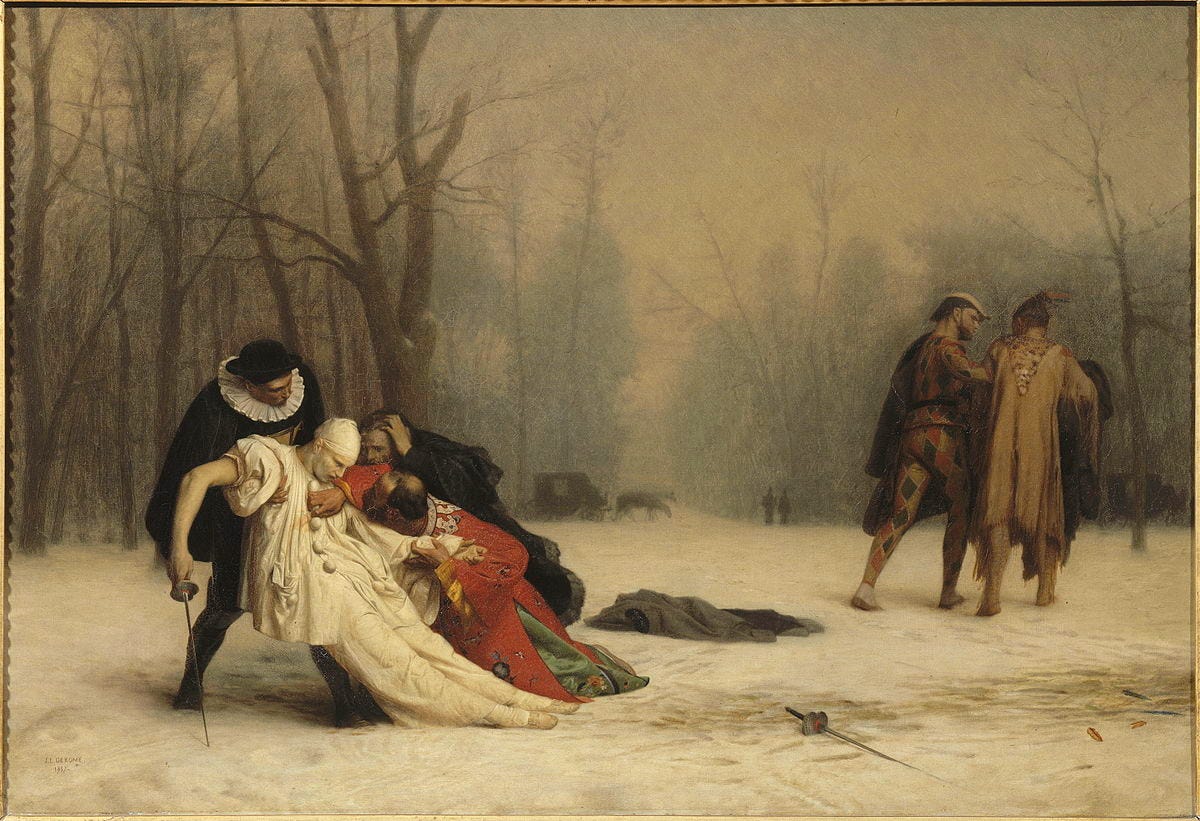The Purpose of Dueling
and the Bureaucratic Hell that Replaced it
Follow me on Twitter: @FromKulak
Dueling was primarily "used" to settle matters of Sexual Impropriety and regulate gossip (professional and personal). It certainly worked better than HR.
Part of the norm was that it was just expected men who did not duel (peasants, ect.) could be beaten, socially exil…



